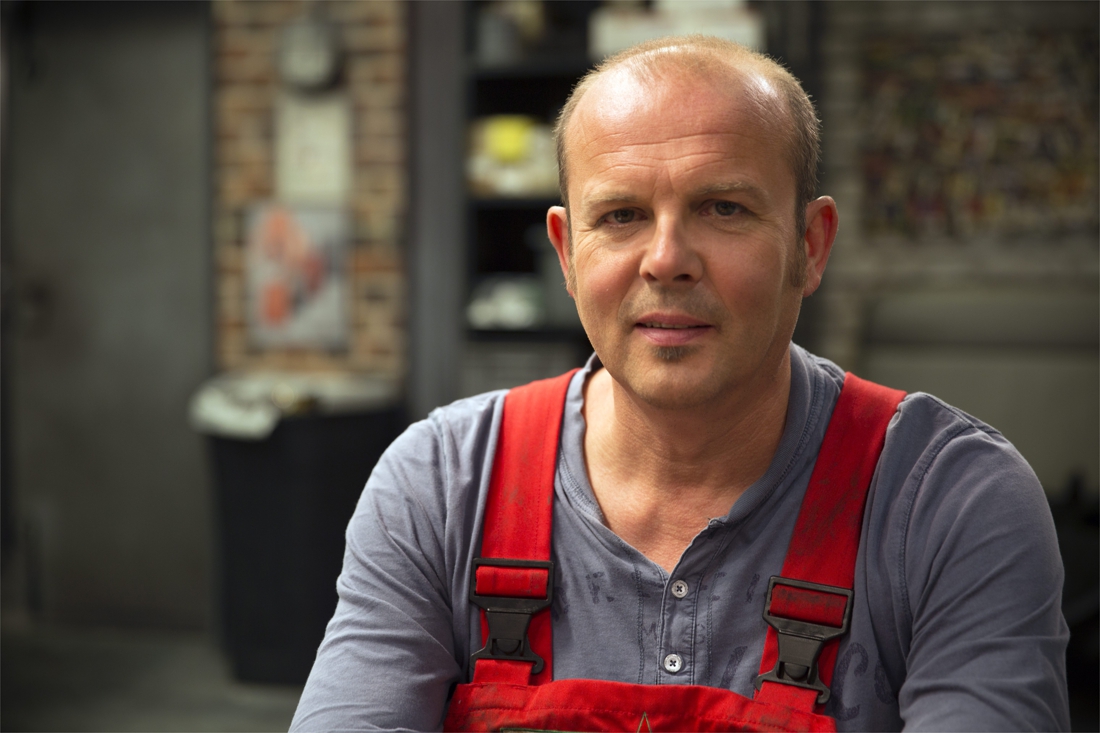Michael Zeltner sits between colorful plastic hangers and 3D printers that rattle around the clock. The 33-year-old Viennese has been working on the production of “Face-Shields” (protective shields, visors) for hospital staff in the US metropolis of New York, which has been plagued by the Corona crisis for a month.
In a hackerspace in Manhattan, New York, Zeltner oversees a 3D printer farm that produces three-dimensional hangers layer by layer that are used to make face shields. (A hackerspace is a space in which hackers and those interested in science, technology or digital art meet, work and exchange.)
To date, more than 23,500 face masks and visors have been brought to men and women in this way. The “NYC Makes PPE” initiative was launched by engineers, nursing staff and hackers in a “DIY” manner in order to easily supply the overburdened hospitals with protective masks. Because there is far too little of this in New York – Zeltner calls it “institutional failure” – which is why the hacker community to which he belongs already thought about how it could help in February. The result is a decentralized production of masks and signs in cooperation with universities such as New York’s Columbia University. This is being financed with the help of an ongoing crowdfunding campaign.
The masks and signs can be used by caregivers or other health workers directly below https://nycmakesppe.com to order. “This low-threshold access was important to us. As a child of a single nurse, I know how people who are lower in the institutional hierarchy of a hospital are often disadvantaged,” says Zeltner.
Of the currently 16,000 face shields, more than half were produced with 3D printing, the others were cut with a laser cutter and glued together with foam.
The production is carefully planned, the safety precautions are high: Zeltner, who always works alone and with a face mask, sends the hangers that his 3D printer spits out by post, sometimes another volunteer picks them up. Delivery to the person who ordered the face mask is also done by volunteer messengers. At no time do people stay together in a closed room.
“My daily rhythm has completely changed,” says Zeltner, who studied fine arts in Berlin and New York and works at the interface between art and technology. Currently he is busy maintaining the 3D printer and cleaning the mask parts for up to 12 hours a day. To be closer to his place of work, he and his wife moved from Brooklyn to Manhattan at the beginning of April: They now live in an apartment on 8th Avenue in the immediate vicinity of Madison Square Gardens as a sublet. The two only leave the apartment to go shopping. Instead of taking the subway, Zeltner rides his bike through New York’s lonely streets; Even on the otherwise turbulent 8th Avenue, it is quiet and no traffic noise can be heard. “New York fell into a deep sleep,” he says – the sirens can be heard most of all at the moment.
–

:quality(80)/cdn-kiosk-api.telegraaf.nl/8f2b28c6-3098-11eb-a7d6-0255c322e81b.jpg)
